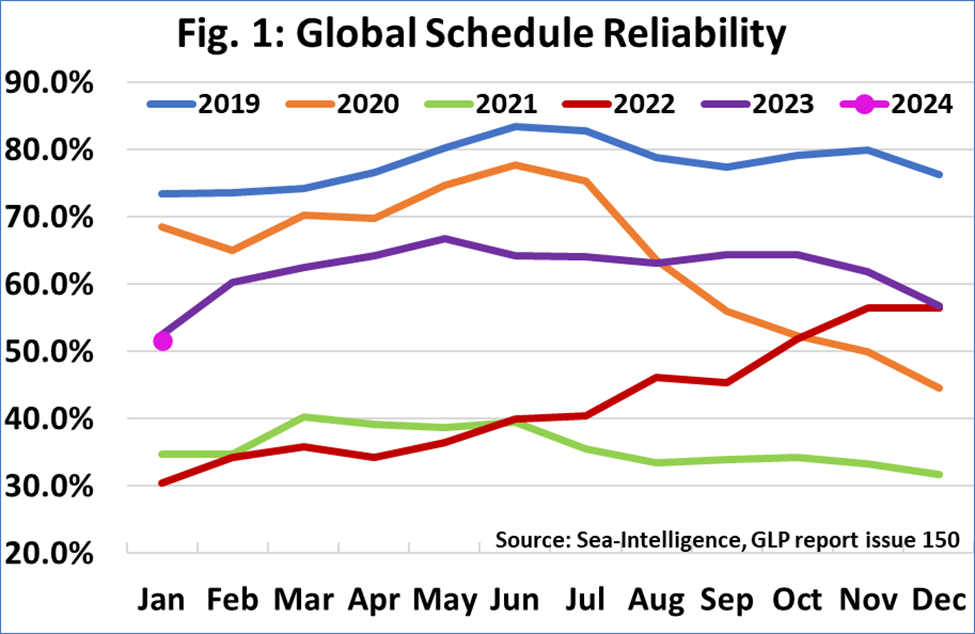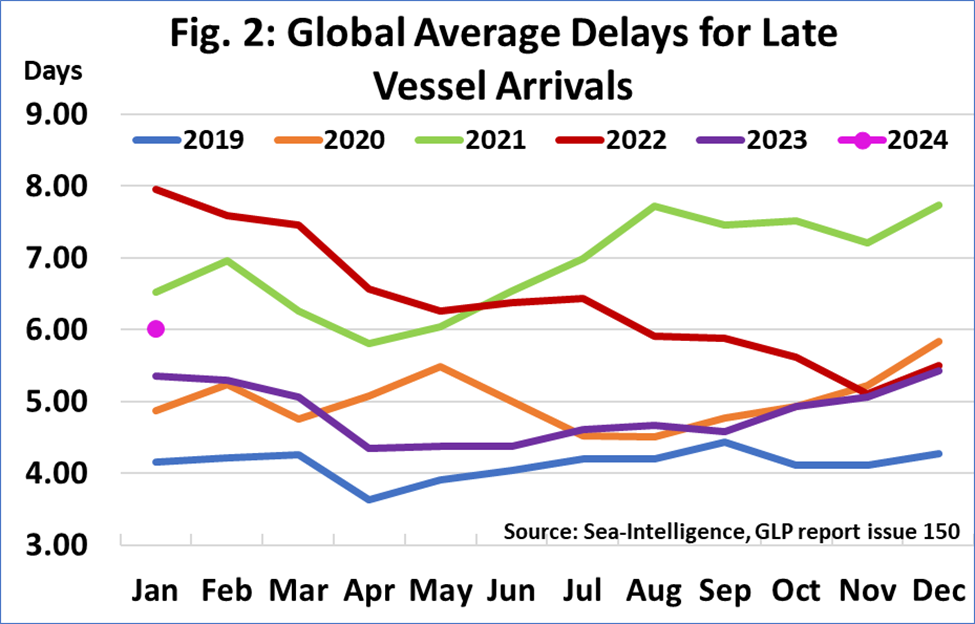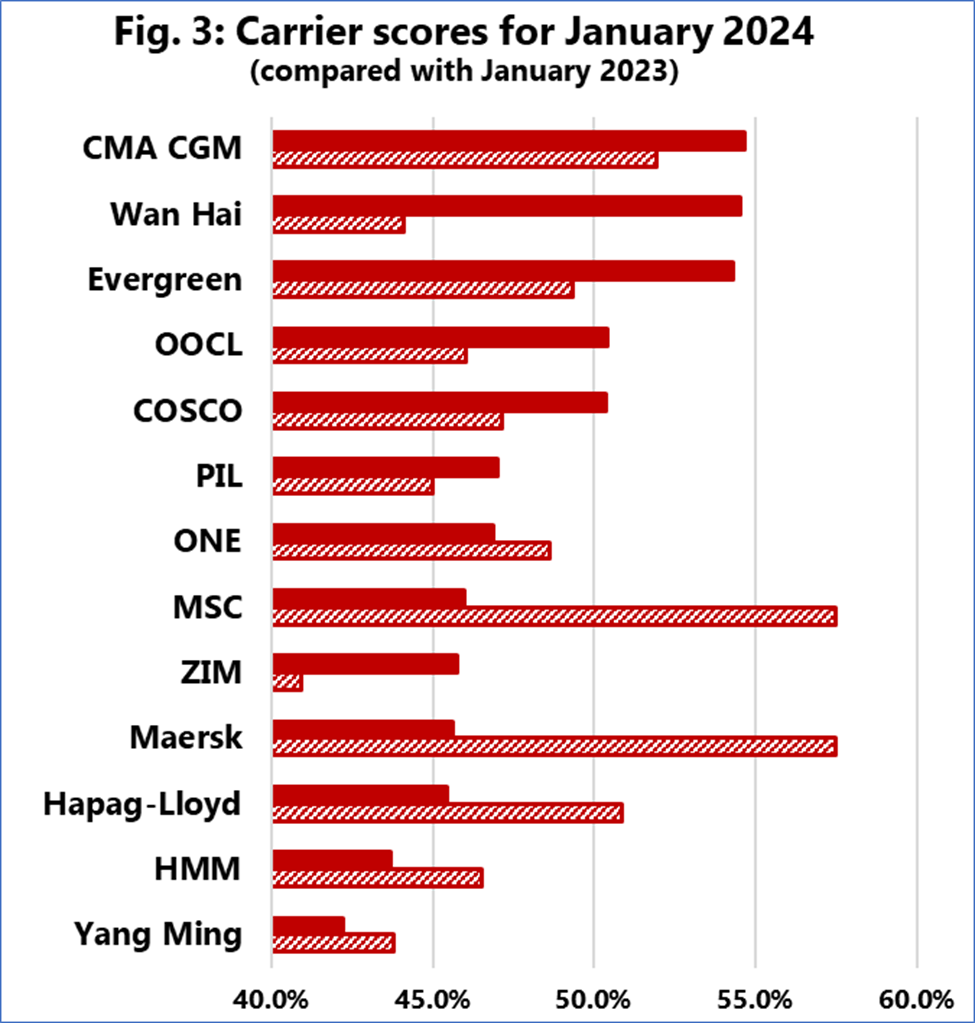Most customers direct much of their focus on cost per TEU, kg, CBM, or other metrics. However, only a few customers focus on the reliability of deliveries as a KPI. The reliability factor introduces some hidden costs, including cash flow management, inventory stock, and delayed payments for the final cargo delivery. Canaan Group continues to track and emphasize costs and the reliability of vendors’ key strengths and weaknesses. Our logistics professionals subscribe to various real-time data analysis sources to formulate a strategic vendor selection process to match customers’ needs.
In the latest release by Sea Intelligence with the Global Liner Performance (GLP) report, the data shows that the reliability of global schedules is still sitting at 50%, primarily due to the Red Sea Attacks.

Depending on the trade lanes, on average, there is at least a 6-day delay in vessel arrivals. Some trade lanes can accumulate up to 15 days of delay depending on the routing and the shipping line. Additionally, on a year-on-year basis, schedule reliability in January 2024 was 0.8 percentage points lower than in January 2023. Notably, the average delay for late vessel arrivals worsened due to round-of-Africa sailings, rising by 0.59 days month-on-month to reach 6.01 days.

In January 2024, CMA CGM emerged as the most reliable carrier among the top 13, boasting a schedule reliability of 54.7%. Following closely were four other carriers surpassing the 50% mark. The rest of the carriers maintained schedule reliability within 40% to 50%, with Yang Ming ranking as the least reliable carrier with a schedule reliability of 42.2%. Notably, in January 2024, the difference in schedule reliability between the most and least reliable carriers narrowed to its lowest point since February 2023.

If you have further questions, please get in touch with Canaan Group sales or email sales@canaangroup.ca.


